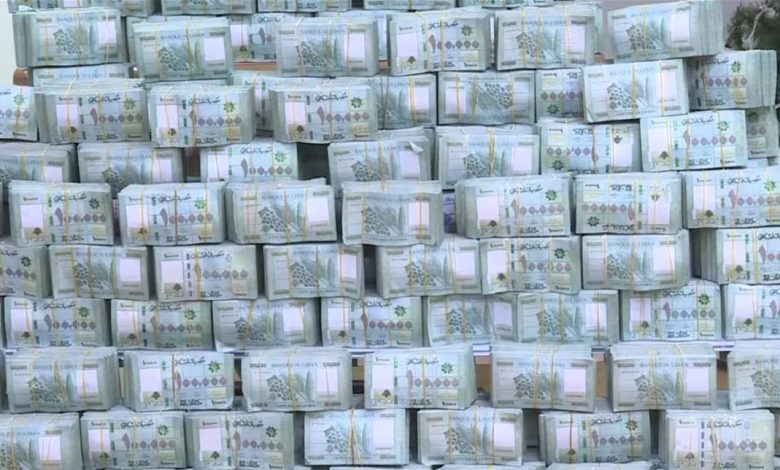اللائحة الرمادية وتأثيرها على الليرة اللبنانية: هل تتجه البلاد نحو أزمة جديدة؟
صرّح الباحث الاقتصادي الدكتور محمود جباعي لموقع “ليبانون ديبايت” أن وضع لبنان على **اللائحة الرمادية** لمجموعة العمل المالي (FATF) كان متوقعاً، ولكنه إذا تحقق، يجب تسليط الضوء على الأسباب التي أدت إلى هذا القرار لفهم كيفية معالجة الوضع.
وأشار جباعي إلى أن “مجموعة العمل المالي (فاتف)” قد أشادت بجهود **مصرف لبنان** والمصارف اللبنانية في الامتثال للمعايير المالية الدولية. فقد تم تنفيذ 34 من أصل 40 شرطًا، متعلقة بالشفافية المالية، تدقيق الحسابات، ومعايير التعامل النقدي. وأوضح أن مصرف لبنان قد أجرى تعديلات جوهرية في ميزانياته بما يتناسب مع الأصول المالية العالمية، وأرسى قواعد واضحة للشفافية في التعامل مع وزارة المالية والمصارف الأخرى، مما مكنه من الحفاظ على مستوى معين من الثقة الدولية.
لكن جباعي أكد أن الإشكالية الرئيسية تكمن في **ستة شروط** مرتبطة بالدولة اللبنانية، تشمل: **التهرب الجمركي والضريبي، التهريب عبر الحدود، القضاء، الفساد، تبييض الأموال، وعدم هيكلة القطاع المصرفي**. وأضاف أن عدم تقديم خطة واضحة لرد الودائع كان عاملاً آخر أثّر في قرار مجموعة العمل المالي.
وتوقع جباعي أنه إذا تم وضع لبنان على اللائحة الرمادية، فإن الدولة قد تتلقى تحذيراً لتعديل تلك الشروط قبل اتخاذ خطوات أشد. ورغم التداعيات السلبية المتوقعة، أكد أن مصارف المراسلة الرئيسية ستواصل التعامل مع لبنان، مما يقلل من الكوارث الاقتصادية.
ودعا جباعي الدولة اللبنانية إلى التعاون مع مصرف لبنان والمصارف لحل الثغرات الحالية وتقديم طلب جديد للمجموعة المالية الدولية لإعادة تقييم وضع لبنان. وشدد على أن اللائحة الرمادية ليست نهاية المطاف، مشيراً إلى أن انتخاب رئيس جديد وتشكيل حكومة قد يساعدان في تحسين صورة لبنان أمام المجتمع المالي الدولي.
وختم جباعي بتطمين اللبنانيين أن **سعر صرف الليرة** لن يتأثر بشكل كبير حتى في حال وضع لبنان على اللائحة الرمادية، حيث أن مصرف لبنان يمتلك السيطرة الكافية على الكتلة النقدية، وأن التحويلات المالية ستستمر لفترة، وكذلك عمليات الاستيراد.
المصدر: ليبانون ديبايت
The Grey List and its Impact on the Lebanese Lira: Is Lebanon Heading Toward a New Crisis?
Economic researcher Dr. Mahmoud Jabaai told “Lebanon Debate” that placing Lebanon on the **FATF Grey List** was anticipated, and if confirmed, it’s important to examine the reasons behind this decision to understand how to address it.
Jabaai highlighted that the **Financial Action Task Force (FATF)** had praised **Lebanon's Central Bank (BDL)** and local banks for complying with international financial regulations. Out of the 40 conditions, 34 have been met, focusing on financial transparency, audit standards, and monetary operations. He also noted that the Central Bank had adjusted its balance sheets in line with global financial standards and ensured transparency in its dealings with the Ministry of Finance and other banks, which helped maintain a certain level of international confidence.
However, Jabaai pointed out that the core issue lies in **six conditions** tied to the Lebanese government: **customs evasion, tax evasion, border smuggling, judiciary, corruption, money laundering**, and the lack of banking sector restructuring. The absence of a clear plan to return deposits has also contributed to Lebanon’s potential inclusion on the grey list.
Jabaai speculated that if Lebanon is placed on the grey list, the country might receive a warning to amend these issues before facing more severe consequences. Despite the negative impacts, he reassured that correspondent banks would continue to work with Lebanon, mitigating some of the economic fallout.
He urged the Lebanese government to collaborate with the Central Bank and banks to address these gaps and submit a new request to the FATF to reconsider Lebanon’s status. He stressed that the grey list is not the end, suggesting that electing a new president and forming a government could help improve Lebanon's financial standing.
In conclusion, Jabaai reassured the Lebanese people that **the exchange rate** would not be significantly impacted, even if Lebanon is placed on the grey list. The Central Bank maintains adequate control over the monetary supply, and remittances as well as imports are expected to continue for some time.
Translated by economyscopes team
 سكوبات عالمية إقتصادية – EconomyScopes إجعل موقعنا خيارك ومصدرك الأنسب للأخبار الإقتصادية المحلية والعربية والعالمية على أنواعها بالإضافة الى نشر مجموعة لا بأس بها من فرص العمل في لبنان والشرق الأوسط والعالم
سكوبات عالمية إقتصادية – EconomyScopes إجعل موقعنا خيارك ومصدرك الأنسب للأخبار الإقتصادية المحلية والعربية والعالمية على أنواعها بالإضافة الى نشر مجموعة لا بأس بها من فرص العمل في لبنان والشرق الأوسط والعالم




